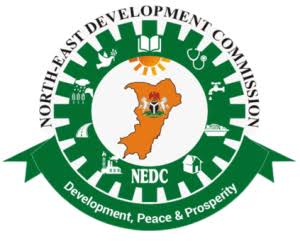The North East Development Commission (NEDC), like its counterpart, the Niger Delta Development Commission (NDDC), was conceptualised as an interventionist agency to fast-track the rehabilitation of the areas concerned which were ravaged by environmental despoilation due to criminal neglect on the part of oil explorers as is the case in the Niger Delta or insurgency as is the situation in the North East.
As inefficient as NDDC is, it, however, provided a blueprint that served as a take-off point for the NEDC with an in-built action plan for demobilisation, disassociation, reintegration, and reconciliation for those associated with Boko Haram. This plan was based on strengthening criminal justice responses to terrorism in the Northeast.
Overtime, we note that the NEDC, given the unabating insurgent tendencies, and in order to influence peace in the area, pursued the trajectory of development projects as tools for that purpose. The commission, at inception, battled with not just the negative impact of terrorism but also the criticisms by sections of the country that it was one agency too many.
In the considered opinion of this newspaper, the commission has been able, since it came into existence, to manage the challenges it met on ground with a single-minded determination on the part of both the government and other international collaborators on one hand and a management willing to leave its mark in the sands of time, on the other. It is important to note that, in no time, the NEDC under its rapid response intervention (RRI), has recorded some achievements such as the execution of about 224 developmental Projects in 112 Local government areas across the six North-East states.
A dispassionate assessment of the impact of the commission in the catchment area, will reveal that its RRI programme which is part of a comprehensive master plan to holistically rebuild the region based on the recommendations and demands of the states in the areas of education, health, social Infrastructure, agriculture and water, sanitation and hygiene (WASH), is making measurable progress.
These projects were part of the early recovery action plans by the commission to rehabilitate simple Infrastructure which included, public and Institutional structures, boreholes and culvert that were ravaged by the insurgency.
It is also pertinent to recall that before this current year, the NEDC had earmarked N6billion to replenish the 10 per cent annual grants on scholarship for students in the region. Under this arrangement, the beneficiaries include; 5 000 bachelor’s degree, 336 masters and 54 doctorate degree candidates.
Similarly, part of that fund is used for skills acquisition, training and provision of starter packs to be distributed to 5, 000 Information Communication Technology (ICT) trainees, 5000 women and youths on entrepreneurship scheme, and 2000 others who have acquired vocational skills in each of the 1,028 wards in the Northeast.
As a newspaper, we observe that NEDC, in the actualisation of its mandate as well as a way of bringing in more beneficiaries into the developmental net, recently launched the North-East Development Commission (NEDC) Education Endowment Fund (NEDC-EEF). Remarkably, in our view, about 5,097 persons drawn from the six states in the geo-political zone stand to benefit from that education fund. Apart from the scholarship scheme, the fund will be deployed to assist in the training of teachers, resource mobilisation and provision of grants, among others.
Already, about 115 schools have been selected for the construction of one block of three classrooms each, with the supply of school desks and learning materials. the Fund had earlier trained 1,800 teachers from the six states of the region to improve their skills.
It is understandable why the commission is pushing hard on its educational policy. It is, in our opinion, a measure to counter the plan by the insurgents to discourage educational attainment in the area as well demoralise the youth from pursuing their academic goals. It will be noted that Boko Haram, by its simple definition means, education, especially western style education, is forbidden. To drive home this nebulous tendency, the criminals embarked on the horrendous pastime of kidnapping students and killing many others in the process.
It is from this perspective that we commend both the federal and state governments in the area for their roles, through the NEDC, towards ensuring that normalcy returns to North-East. We also consider it appropriate to commend the management of the commission for the good job it is doing in trying to return North east to the path of normalcy, growth and development.
However, it is important to remind it that without transparency and robust collaborations, success would be a short-lived phenomenon. The NEDC may be making meaningful contributions in the lives of victims of Boko Haram through its interventions, it is necessary also to state that it will be counter-productive for it to rest on its oars. It is in that context that friends of the region should encourage it by providing the needed resources including constructive criticisms that will help keep it focused on the onerous job at hand.



